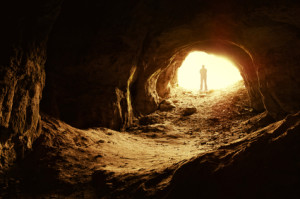Thoroughly Following the Path of Recovery

When discussing “Salvation” in the New Dictionary of Biblical Theology, M.J. Harris said it had three tenses: the past, the present and the future. Trusting in the reality of our past deliverance in Christ, salvation can be understood as a past event. ‘Being saved’ is also an ongoing, present process as believers strive to manifest the reality of that salvation in our present lives (Romans 6:6, 12-14, 19). Yet the ultimate consummation of salvation lies in the future when Christ will return and redeem His creation. Christians are saved in hope with the expectation of the redemption of the body (Romans 8:23-24).
There is a similar sense of three tenses in recovery: a past decision to be abstinent, coupled with a present commitment to change, which results in the future realization of recovery. Abstinence may be a past completed action, but recovery is also a process of change that continues throughout the life of an addict or alcoholic. In this way, there is an eschatological sense to both salvation and recovery, where growth and change is a progressive process of striving for a fulfillment we cannot achieve in this life. Progress, not perfection applies equally to the journeys of salvation and recovery.
The Importance of Faith
(Romans 5:1-2) Therefore, since we have been justified by faith, we have peace with God through our Lord Jesus Christ. Through him we have also obtained access by faith into this grace in which we stand, and we rejoice in hope of the glory of God.
The three tenses of salvation are embedded in what Paul says here. Paul concludes that since we have been justified by faith (a past completed action), which he convincingly demonstrated in chapters one through four of Romans, we now have (present tense) peace with God “through our Lord Jesus Christ.” We also have access by faith into the grace in which we stand (present tense); and so, we rejoice in hope of the glory of God. The past completed work of Christ results in grace and peace with God; and we rejoice in the future hope of the glory of God. No human being will ever be justified by works of the law (Romans 3:20). But now the righteousness of God through faith in Christ is available as a free gift for all who believe (Romans 3:21-4:25; esp. v. 3:24). Therefore, we rejoice, because what had seemed hopeless is no longer hopeless because we have been justified by faith.
While it clearly lacks the centrality of Christ, consider the parallels with this example of the three tenses of recovery.
J. B. boldly declared there was never a clearer example of faith in God than his. As an alcoholic, “Four walls and a bottle had become my world.” He drank until he was unconscious. He carried on conversations with “the man who wasn’t there.” He imagined little bugs crawling under his skin; and more. With the help of a friend, he came to the realization that he had been trying to run his own life. “I had always known there was a Higher Power, but I had forgotten God. He hadn’t forgotten me.” He was convinced that only a power greater than himself could cure him of his obsession for liquor. With complete faith, he turned to God. He admitted defeat and asked for help. He began to work the principles of the A.A. program.
I found peace within myself. I felt in harmony with, and became conscious of, the power of God. It is in the air we breathe, in the wonders of creation. . . . I changed on the inside, so life for me changed on the outside. I have faith in myself again. I became free of that pattern of running away from life and myself. I didn’t need an escape. My alcoholic problem had disappeared. . . . I am grateful and humble to be a part of something so big and wonderful; a spiritual program that is growing, and whose principles can be applied to all our daily affairs. It is simple. It is faith. (“When Faith Helped Me Most,” AA Grapevine, November 1952)
Suffering Leads to Hope
(Romans 5:3-5) More than that, we rejoice in our sufferings, knowing that suffering produces endurance, and endurance produces character, and character produces hope, and hope does not put us to shame, because God’s love has been poured into our hearts through the Holy Spirit who has been given to us.
Paul says that not only do we rejoice in our future hope of the glory of God, we also rejoice in our present sufferings or troubles. Our present peace is not just because of our future hope. Right now, in the midst of our troubles we can rejoice, because suffering produces endurance, endurance produces character, and character produces hope. The Greek term for “character” here denotes something that has been proven by trial. Perseverance or spiritual tenacity in the midst of trials and suffering produces character, which leads to hope. There is a progressive spiral upwards that begins with the grace we obtained by faith and ends with hope that will not put us to shame.
The implication here is that we cannot be defeated; there is always hope in achieving the glory of God, if we remain faithful. Looking ahead to our future hope, confident of its fulfillment because we have been justified by faith, we endure in suffering. As we continue to bear up under trying circumstances, Robert Mounce thought we developed strength of character. “Christian suffering is a source of joy because its purpose is to build character in the believer.”
Christianity is not a masochistic rejoicing in suffering, but it is a confidence that when we rely upon Christ in the midst of our suffering, we cannot be defeated. But without faith, there is a progressive downward spiral: suffering brings about despair; despair leads to faint-heartedness; and faint-heartedness produces hopelessness. Hope leads to more hope; hopelessness brings about greater hopelessness.
In “Embers of Hope,” a man described the consequences of a decision he made to end his life on Labor Day, 2001. After drinking himself into oblivion, he set fire to his house and staggered into the woods behind his home. There he put a shotgun with a rifle slug under his chin and pulled the trigger.
An hour later he awoke, filled with disgust for failing to end his life. He’d only brought one shell and couldn’t go back home for more, because by this time there were twelve fire companies on the scene. So, he crawled further into the woods, hoping that he would bleed to death before anyone could find him. In what he said was “an act of Providence,” he had a moment of clarity and somehow found the strength to walk the distance he had crawled into the woods.
A photographer for a local paper who saw him at first thought he was some kind of a Halloween decoration, with his jaw blown away and his left eye hanging out of its socket. The doctors who treated him said it was a miracle he was alive; ten more minutes in the woods and he would have most likely bled to death.
In the hospital, I awoke one morning and standing next to my bed was the pastor from the local church in my community. He asked me in no uncertain terms if I had had enough yet and handed me a Bible and the A.A. Big Book. With tears streaming down my face, I reached out for the books. With a nod of submission, I started my journey into recovery.God has turned my shadow of death into another morning and A.A. is giving me the tools to live in this day. I am powerless over alcohol, and I firmly believe that what my human helplessness could not overcome, God’s divine enablement can. (AA Grapevine, June 2007).
The reason for us to have hope as we endure suffering is: “because God’s love has been poured into our hearts through the Holy Spirit.” This love is God’s love for us, which does not waver and cannot fail. He has loved us with an everlasting love and continues His faithfulness to us (Jeremiah. 31:3). The Greek word translated as poured in Romans 6:5 has the sense of dying as a sacrifice (Matthew. 26:28; Mark. 14:24; Luke. 22:20). Paul is obviously thinking of the atoning sacrifice of Jesus Christ through which we receive the Holy Spirit. This love of God has also been poured into our hearts; and what rules our heart, rules our behavior (Matthew. 6:21; Luke. 6:45). Again, the result is that we will be like Him. We shall be at peace with God and full of the glory of God. So we rejoice in our sufferings, as we rejoice in hope of the glory of God, because nothing can separate us from the love of God in Christ (Romans 8:39).
Often in recovery there is a tendency to focus efforts on addictive behavior, the wrong doing of addiction. Don’t drink and go to meetings. Don’t pick up the first joint, pill, fix or drink. Stay away from people, places and things associated with addiction. Although these behavioral changes are necessary, they are not sufficient for long-term recovery. Just not using drugs or alcohol (abstinence) and systematically modifying your addiction-related behavior is a shallow imitation of true recovery. Without concurrent attention to the wrong being of addiction, the addict or alcoholic will eventually resume active drinking or drug use. There has to be a corresponding change in the heart and soul of the addict or alcoholic; you must abstain from active drinking or drug use and then change the thinking, feeling and attitude patterns that were part of the addictive lifestyle. You have to transform, to metamorphose your mind (Romans 12:2).
On February 20, 2001, a man named ‘John’ was killed by a hit-and-run driver. The driver turned himself in and was incarcerated for vehicular homicide. Despite three previous citations for drunken driving, he had continued to drink. The night of the accident, he swore he’d never drink again; Again. But after a year of being locked up, it became “I will never drink and drive again.” One day he went to an A.A. meeting in prison, and realized it was three years to the day of the accident. He took that as a sign and has been active in A.A. and practicing the Twelve Steps ever since. He’d been contacted previously by John’s brother, and so after a year in A.A., he wrote another letter to John’s brother, saying that he belonged to A.A. and was practicing the Twelve Steps in his life. He hoped his story would reach another alcoholic, “and–in John’s memory–save at least one family from the tragedy I had put his family through.” Ten months later, he received a letter, which said:
I am John’s mother and will celebrate five years of sobriety on the twenty-second-of this month. I do not know what direction this letter will take–I leave it to God to guide me. Twenty-nine years ago, I gave birth to John and, in honor of the way he lived and the loving memories I have of him, I find the right thing to do is to reach out to you. John’s brother shared your letter of amends. I cannot describe the gratitude I felt and the healing that letter brought. I sobbed in my sponsor’s arms and let go of so much of what I had kept inside me. Thank you. I pray that you will keep on the path of sobriety and receive God’s love and forgiveness. (“A Letter from the Mother of the Man I Killed,” AA Grapevine, December 2006)
“Rarely have we seen a person fail who has thoroughly followed our path. . . . It works–it really does” (Alcoholic Anonymous, p. 58).
If you’re interested, more articles from this series can be found under the link for “The Romans Road of Recovery.” “A Common Spiritual Path” (01) and “The Romans Road of Recovery” (02) will introduce this series of articles. If you began by reading one that came from the middle or the end of the series, try reading them before reading others. Follow the numerical listing of the articles (i.e., 01, 02, or 1st, 2nd, etc.), if you want to read them in the order they were originally intended. This article is the 13th in the series. Enjoy.









